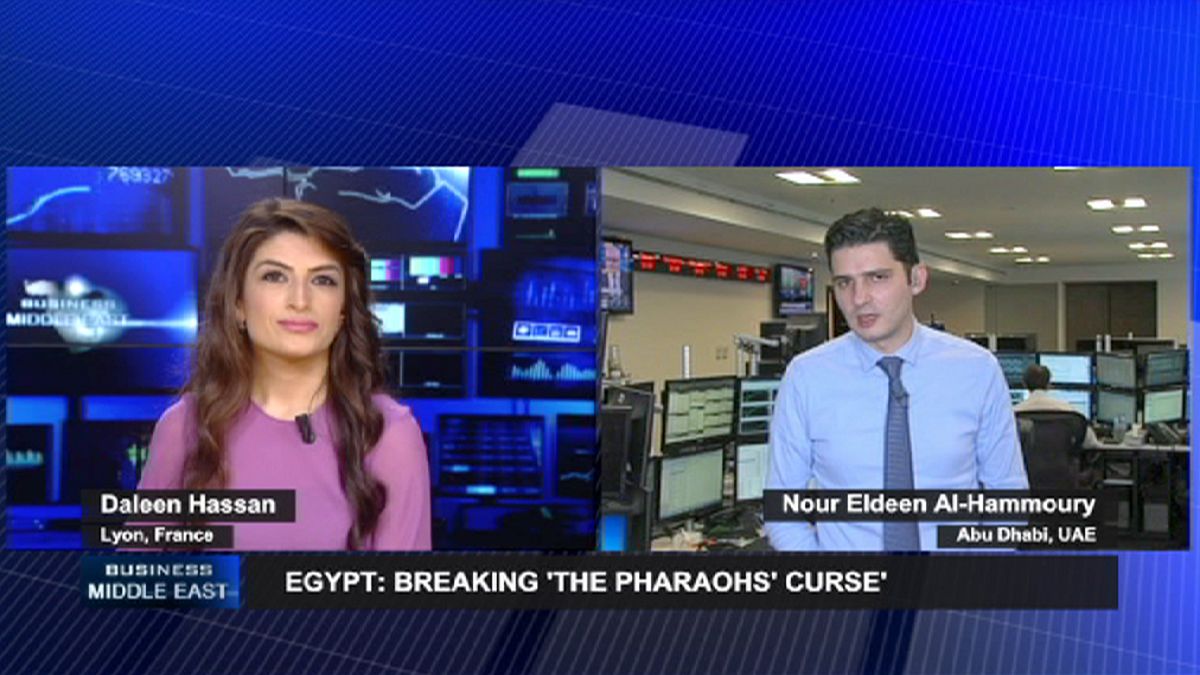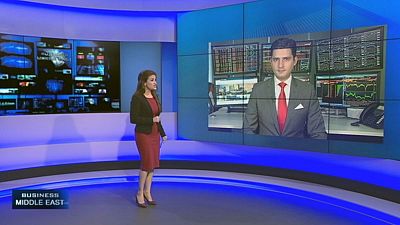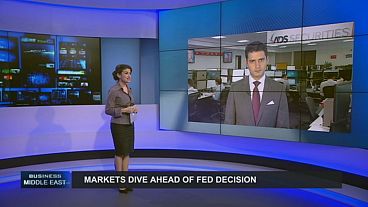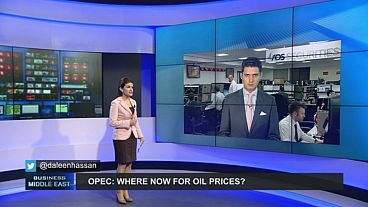An economic version of the curse of the pharaoh’s has cast its shadow over Egypt for the past three years with the country going through seismic political instability. Consequently, it faces a tough battle to turn around its economy
As a first step the Cairo government is moving to restore investors confidence by raising money on the international bond markets and is launching a major expansion of the Suez Canal.
After several years of turmoil and economic difficulties, Egypt is talking about raising the equivalent of 1.2 billion euros on the international bond markets.
Kuwait is also being spoken of as a possible financial aid donor as it prepares to sign a trade and industry cooperation agreement with Egypt.
Recently appointed Finance Minister Hany Kadry Dimian says the government is open to different sources of financing, depending on how much it needs and when – either from global investors or even an International Monetary Fund loan package.
President Abdel Fattah al-Sisi has introduced controversial economic reforms – including cutting energy subsidies and increasing taxes – to further reduce the budget deficit.
One way of boosting the economy is the expansion of the Suez Canal, to allow use by bigger ships and to cut waiting times.
Contracts have been awarded to six international firms from the Emirates, the Netherlands, Belgium and the US. The ambitious schedule is for work to be completed in August 2015.
Meanwhile, Moody's has raised Egypt's credit ratings outlook from negative to stable, citing greater institutional stability
Reflecting improving investor confidence, the Cairo Stock Exchange has risen 12 percent over the last three months.
For more on these issues Daleen Hassan spoke to Nour Eldeen Al-Hammoury, Chief Market Strategist at ADS Securities in Abu Dhabi.
Daleen Hassan: “Egyptian shares have had a good run recently, what about in the long term?”
Nour Eldeen Al-Hammoury: “Well the longer term is basically based on the economic outlook of Egypt despite the fact that there were some noise around the economic situation after the new president came in. There were some developments and projects, especially the Suez Canal project. So, right now we have seen EGX 30 (Egypt general stock market index) recover significantly from 8,500 last week to above 9,400 so far.
“This is the level that everybody will be looking at and it’s near the record high. So we believe that in the longer term that is going to continue to be attractive as more and more projects come in to Egypt and the banking sector remains solid and attractive, and the financial markets.
Daleen Hassan: “Borrowing on the international bond markets, spending on the Suez canal project – those are big commitments for a country with a weak economy and a budget deficit at 10 percent of GDP: can Egypt rise to these challenges?”
Nour Eldeen Al-Hammoury:“There were challenges at the beginning of the revolution, however we have seen some a very good recovery in what’s happening in Egypt, especially after the government took a lot of austerity measures. Even that the Suez Canal is a huge project, but the IPO was over subscribed significantly.
“Even with the current situation of borrowing, Egypt has been borrowing for a long time now. It’s not a very big concern; don’t forget that the Gulf area is injecting huge liquidity into Egypt and in the projects in Egypt, so there is no concern on the longer term over the debt, or about the rating of Egypt.
“Lately we have seen some of the rating agencies (Moody’s) come in and they changed the outlook from negative to stable, so this is more good news for investors to restore the confidence in Egypt.
“So, we don’t think that on the longer term it will be affected so sharply. It’s going to be expanding gradually and we might see a downturn but it will be limited.”



